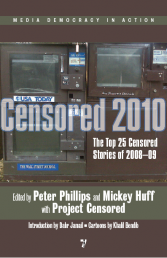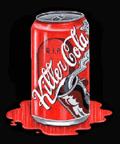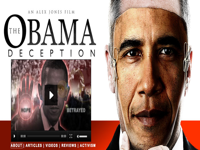Posts Tagged ‘globalization’
From Wikipedia:
Jane buys a share in a company for $100, using $20 of her own money, and $80 borrowed from her broker. The net value (share – loan) is $20. The broker wants a minimum margin requirement of $10.
Suppose the share goes down to $85. The net value is now only $5, and Jane will either have to sell the share or repay part of the loan (so that the net value of her position is again above $10).
Maybe you can’t remember the crisis on 1929, but you can see this to know a little bit more:
Ok, but what’s the truth?
From Wikipedia:
McFadden is also remembered for his criticism of the Federal Reserve, which he claimed was created and operated by European banking interests who conspired to economically control the United States. On June 10, 1932, McFadden made a 25-minute speech before the House of Representatives, in which he accused the Federal Reserve of deliberately causing the Great Depression. McFadden also claimed that Wall Street bankers funded the Bolshevik Revolution through the Federal Reserve banks and the European central banks with which it cooperated.
In 1932, he moved to impeach President Herbert Hoover, and also introduced a resolution bringing conspiracy charges against the Board of Governors of the Federal Reserve. The impeachment resolution was defeated by a vote of 361 to 8; it was seen as a big vote of confidence to President Hoover from the House.[5]
In 1933, he introduced House Resolution No. 158, Articles of impeachment for the Secretary of the Treasury, two assistant Secretaries of the Treasury, the Board of Governors of the Federal Reserve, and the officers and directors of its twelve regional banks.
There were two attempts on McFadden’s life, a failed shooting and an apparent poisoning that made him “violently ill” after attending a political banquet in Washington. [6][7] He died in 1936 on a visit to New York City, and was interred in East Canton Cemetery in Canton, Pennsylvania.
The result?
Panic, suicides, recession… it seems to speak about 2008, isn’t it?
International Monetary Fund, World Bank and Prime Ministers and Presidents of the whole world say only “there is crisis”, “recession”, “economical crash”, “danger, danger, danger”… and so on.
Someone created this crisis, sat down on his chair. Someone will gain from this crisis, sat down on his chair. We’re stupid, we’re sacrificial lambs: our families, our money, our houses, we are losing all. Do you love your children? Fight against the market, the free market and neoliberism.
The officers who think the market as the first representative are very rare, if still exist. The current business philosophy stresses that trade has an ‘objective is to prevent that meet the needs, it must create additional needs that require to be met and identifies the task of’ creating demand with supply. That argument applies to any product, be it from factories or companies. The above business philosophy also applies to loans: l ‘offer of a loan must create and magnify the need to borrow. L ‘introduction of credit cards was a sign. The credit cards were launched on the market with a slogan extraordinarily seductive and revealing: “Why wait to get what you want?”. Want something but you did not earn enough to pay? Well, the old days, now happily gone, we had to delay the ‘fulfillment of their desires: tighten their belts, denied other beloved, be prudent in spending and parks and deposit the money so scrape on a savings account in the hope of success, with care and patience needed to accumulate enough to be able to realize their dreams. Thanks to God and the good heart of the banks is not so! With the credit card you can reverse the ‘order: get now, pay later. The credit card makes it free to satisfy the desires at its option: having things when you want to, not when you win six and you can afford to. That was the promise, but under c ‘was also a note characters, difficult to decipher although easy to guess in a moment of reflection: the perennial “after” at some point will become “immediately” and must repay the loan. The payment of the loans taken for not wait to meet immediately the old desires, to make it difficult to meet new ~ Do not think the “after” meant, as always, troubles in sight. You can stop thinking about the future only at your own risk. Surely the bill will be salted. As soon as that arrives late to the realization that unpleasant deferment of ‘appeasement was sostituitoun short postponement of the true terrible punishment for’ being hasty. (Zygmunt Bauman, influent sociologist)
What are we still waiting for?
 free-market, economics, corporation, politics, news, life, usa, globalization, economical_crisis, stock_crash, market_crisis
free-market, economics, corporation, politics, news, life, usa, globalization, economical_crisis, stock_crash, market_crisis
Source: Beppe Grillo’s Blog
Everyone is worried about what will happen. The banks no longer trust the banks. They don’t lend money to each other any more. The poison introduced into the world financial system by the toxic made-in-USA products is producing its effects.
No one in the world can say how much is the quantity of the American poison and where it can be found. The SEC, the FED, the Bush government, the Secretary of the Treasury, Paulson where have they been in the last few years? While their nation was the bastion of liberty, it was exporting cannons and CDO and subprimes, and financial products based on unrecoverable debts. They knew, these bastards that they were unrecoverable.
Shit introduced into funds and derivatives that will produce tens of millions of unemployed, of homeless, of desperate savers. The American public debt is the highest on the planet, the United States consumes a third of the resources of the Earth, but there are only 300 million of them out of 6.7 billion. To stay on their feet they have to control the world economy with finance and with weapons. The United States spends 500 billion dollars EVERY YEAR for weapons, for the hundreds of military bases spread out over the world, from Japan to Cuba to Vicenza. The second nation for military spending is Great Britain with 59 billion dollars, almost a tenth, and Putin’s Russia follows with 35.

Plan B 3.0, Lester Brown
The world is paying for the value of the dollar, the 500 billion dollars for weapons. The United States faced with this financial disaster should do like the defeated Nazi Germany obliged to pay the debts of war and to pay a PEACE dividend to the nations that it brought to their knees.
Between Saddam and Bush, who has done more damage? More dead? The former was executed by the latter who meanwhile also executed the world economy. By whom was Bush elected? By American finance, by the National Rifle Association, the organisation that promotes the arms industry, by the oil barons. In 1989 the Berlin Wall fell, in October 2008, the Wall Street Wall fell together with the delirium of globalization governed by those who gained from it The USSR no longer exists. The United States, for now still exists and they are explaining to us the economy, finance and freedom. They are dealing with protecting us, they make our banks collapse, our Stock Exchanges. Yankees Go Home , with your arms, your atomic weapons, your creative finance.
I don’t believe that the banks will go bust, but this is not the real danger. In a few months, the collapse of finance will be transferred to the real economy, to production. In the spring no one will be thinking about shares or bank accounts but of jobs, and of getting to the end of the month.
 free-market, economics, corporation, politics, news, life, usa, globalization, economical_crisis
free-market, economics, corporation, politics, news, life, usa, globalization, economical_crisis
But with Wall Street rescued by government intervention, there’s never been a better time to argue for collectivist solutions
-

-
- guardian.co.uk,
- Friday September 19 2008 18:40 BST
- Article history
Whatever the events of this week mean, nobody should believe the overblown claims that the market crisis signals the death of “free market” ideology. Free market ideology has always been a servant to the interests of capital, and its presence ebbs and flows depending on its usefulness to those interests.
During boom times, it’s profitable to preach laissez faire, because an absentee government allows speculative bubbles to inflate. When those bubbles burst, the ideology becomes a hindrance, and it goes dormant while big government rides to the rescue. But rest assured: the ideology will come roaring back when the bailouts are done. The massive debts the public is accumulating to bail out the speculators will then become part of a global budget crisis that will be the rationalisation for deep cuts to social programmes, and for a renewed push to privatise what is left of the public sector. We will also be told that our hopes for a green future are, sadly, too costly.
What we don’t know is how the public will respond. Consider that in North America, everybody under the age of 40 grew up being told that the government can’t intervene to improve our lives, that government is the problem not the solution, that laissez faire was the only option. Now, we are suddenly seeing an extremely activist, intensely interventionist government, seemingly willing to do whatever it takes to save investors from themselves.
This spectacle necessarily raises the question: if the state can intervene to save corporations that took reckless risks in the housing markets, why can’t it intervene to prevent millions of Americans from imminent foreclosure? By the same token, if $85bn can be made instantly available to buy the insurance giant AIG, why is single-payer health care – which would protect Americans from the predatory practices of health-care insurance companies – seemingly such an unattainable dream? And if ever more corporations need taxpayer funds to stay afloat, why can’t taxpayers make demands in return – like caps on executive pay, and a guarantee against more job losses?
Now that it’s clear that governments can indeed act in times of crises, it will become much harder for them to plead powerlessness in the future. Another potential shift has to do with market hopes for future privatisations. For years, the global investment banks have been lobbying politicians for two new markets: one that would come from privatising public pensions and the other that would come from a new wave of privatised or partially privatised roads, bridges and water systems. Both of these dreams have just become much harder to sell: Americans are in no mood to trust more of their individual and collective assets to the reckless gamblers on Wall Street, especially because it seems more than likely that taxpayers will have to pay to buy back their own assets when the next bubble bursts.
With the World Trade Organisation talks off the rails, this crisis could also be a catalyst for a radically alternative approach to regulating world markets and financial systems. Already, we are seeing a move towards “food sovereignty” in the developing world, rather than leaving access to food to the whims of commodity traders. The time may finally have come for ideas like taxing trading, which would slow speculative investment, as well as other global capital controls.
And now that nationalisation is not a dirty word, the oil and gas companies should watch out: someone needs to pay for the shift to a greener future, and it makes most sense for the bulk of the funds to come from the highly profitable sector that is most responsible for our climate crisis. It certainly makes more sense than creating another dangerous bubble in carbon trading.
But the crisis we are seeing calls for even deeper changes than that. The reason these junk loans were allowed to proliferate was not just because the regulators didn’t understand the risk. It is because we have an economic system that measures our collective health based exclusively on GDP growth. So long as the junk loans were fuelling economic growth, our governments actively supported them. So what is really being called into question by the crisis is the unquestioned commitment to growth at all costs. Where this crisis should lead us is to a radically different way for our societies to measure health and progress.
None of this, however, will happen without huge public pressure placed on politicians in this key period. And not polite lobbying but a return to the streets and the kind of direct action that ushered in the New Deal in the 1930s. Without it, there will be superficial changes and a return, as quickly as possible, to business as usual.
 free-market, economics, corporation, politics, news, life, usa, globalization
free-market, economics, corporation, politics, news, life, usa, globalization






 E-mail Subscribe
E-mail Subscribe


































